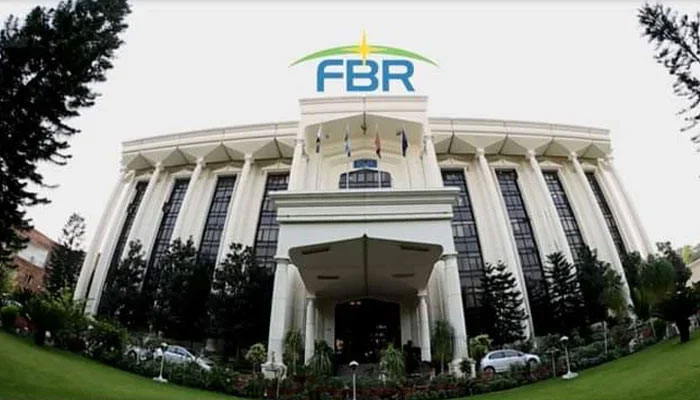Move under study to hike tax rate for sellers, buyers of real estate
Government is considering different proposals to bring real estate sector into tax net including raising tax rates for sellers and purchasers
ISLAMABAD: The government is considering different proposals to bring the real estate sector into the tax net including raising the tax rates for sellers and purchasers for both filers and non-filers as well as collecting Gains Tax irrespective of any period.
In the name of progressive taxation under the IMF demands, the FBR is contemplating options to come up with taxation rates of 3 per cent for property transactions up to Rs50 million, 4pc for up to Rs70 million, and 7pc for Rs100 million under 236C for sellers.
It is under consideration to include capital gains in income (in the case of individuals, including such gains under the head ‘Income from property’, and in the case of corporations, under the head ‘Income from a business’). It is proposed to repeal the capital gains exemption for industrial undertaking in a Special Export Zone (Clause (126D) of Part-I of the Second Schedule) of Income Tax.
Related to enhancing taxation on real estate, there is another proposal that is not directly linked with the budget-making exercise for 2024-25 but the FBR might opt to jack up valuation tables for real estate for different cities to narrow down differences in rates between the market and FBR’s notified valuation rates.
The FBR has undertaken an exercise to revise upward the valuation tables of major cities but it was not yet notified. The revised valuation table might be notified from the start of the next fiscal year. The upward revision in valuation tables helped the FBR collect more taxes after raising the base of valuation rates of different plots depending on the area defined by the FBR.
Under 236C, there is an advance tax on the sale or transfer of immovable property. Now the FBR is considering amending the meaning of “personal movable property” in Section 37(1) of the Income Tax Ordinance (ITO) to include a catch-all category comprising any property capable of being held as an investment, not being stock-in-trade or assets that depreciate or amortise for the ITO.
The FBR will review the tax slabs for capital gains on real estate and listed securities, make sure that such gains are taxed at an appropriate tax rate for capital (as opposed to labour) income, and eliminate the provision that capital gains are untaxed once the underlying asset has been held for a certain period. The taxation of capital gains could be strengthened. One way is to broaden the types of assets subject to capital gains taxation, and in particular, by ensuring that new types of investment assets, such as cryptocurrencies, are within the scope of capital gains taxation. Another is to ensure that capital gains on real properties and listed securities are subject to tax, regardless of the duration of ownership.
Sardar Tahir Mehmood, president of Real Estate Federation Pakistan, when contacted by The News, said that Pakistan’s hard-earned dollars to the tune of $20 to $25 billion had flown out for investment in Dubai and other destinations in real estate so there was a need to avoid the imposition of double taxation at this juncture.
He suggested that the FBR should notify agreed valuation tables of real estate for different cities as it would help the FBR to increase its tax collection. If the valuation tables were revised upward and then in the name of progressive taxation the tax rates for both filers and non-filers were raised, it would prove double jeopardy for the real estate and transactions would witness a further dip.
He also asked to abolish 7E to eliminate unnecessary tax burden, reducing the cost of transactions to 2pc under 236C and 236K for sellers and purchasers and maintaining the period of Capital Gains Tax.
-
 US To Exit WHO: A Seismic Shift In Global Health?
US To Exit WHO: A Seismic Shift In Global Health? -
 Palace Staff Reveals Nothing Has Changed For ‘disgraced’ Andrew After Losing Titles
Palace Staff Reveals Nothing Has Changed For ‘disgraced’ Andrew After Losing Titles -
 How Did Taylor Swift Cope With ‘exhausting’ Sickness During Popular ‘Eras Tour’
How Did Taylor Swift Cope With ‘exhausting’ Sickness During Popular ‘Eras Tour’ -
 Artists Launch ‘Stealing Isn’t Innovation’ Campaign Against AI Use
Artists Launch ‘Stealing Isn’t Innovation’ Campaign Against AI Use -
 Elon Musk’s XAI Grok Imagine Now Generates 10-second Videos With Sharper Quality: Here’s How
Elon Musk’s XAI Grok Imagine Now Generates 10-second Videos With Sharper Quality: Here’s How -
 Gaten Matarazzo Reveals Having A Gripe About Unfair Treatment On 'Stranger Things'
Gaten Matarazzo Reveals Having A Gripe About Unfair Treatment On 'Stranger Things' -
 Jeff Bezos Vs Elon Musk: Blue Origin Enters Satellite Race To Rival Starlink
Jeff Bezos Vs Elon Musk: Blue Origin Enters Satellite Race To Rival Starlink -
 Charlie Puth Explains Why He Went Against His Own Words About 'Hero'
Charlie Puth Explains Why He Went Against His Own Words About 'Hero' -
 Popular Weight-loss Drugs Could Help Treat Addiction
Popular Weight-loss Drugs Could Help Treat Addiction -
 Brooklyn Beckham In ‘terrible Spot’ Like Prince Harry After Airing Family Drama
Brooklyn Beckham In ‘terrible Spot’ Like Prince Harry After Airing Family Drama -
 A$AP Rocky Reveals Real Reason Behind Feud With Drake
A$AP Rocky Reveals Real Reason Behind Feud With Drake -
 Stroke During Pregnancy Linked To Long-term Heart Problems
Stroke During Pregnancy Linked To Long-term Heart Problems -
 Trump Backs Off European Tariffs Threat After Reaching ‘framework Of A Future Deal’ On Greenland With NATO
Trump Backs Off European Tariffs Threat After Reaching ‘framework Of A Future Deal’ On Greenland With NATO -
 South Korea Passes World’s First Comprehensive AI Law, Reshaping Global Regulation
South Korea Passes World’s First Comprehensive AI Law, Reshaping Global Regulation -
 ‘Disgraced’ Andrew’s New Demands Exposed As He Moves Out Of Royal Lodge
‘Disgraced’ Andrew’s New Demands Exposed As He Moves Out Of Royal Lodge -
 Court Allows TikTok To Operate In Canada Pending Review
Court Allows TikTok To Operate In Canada Pending Review




